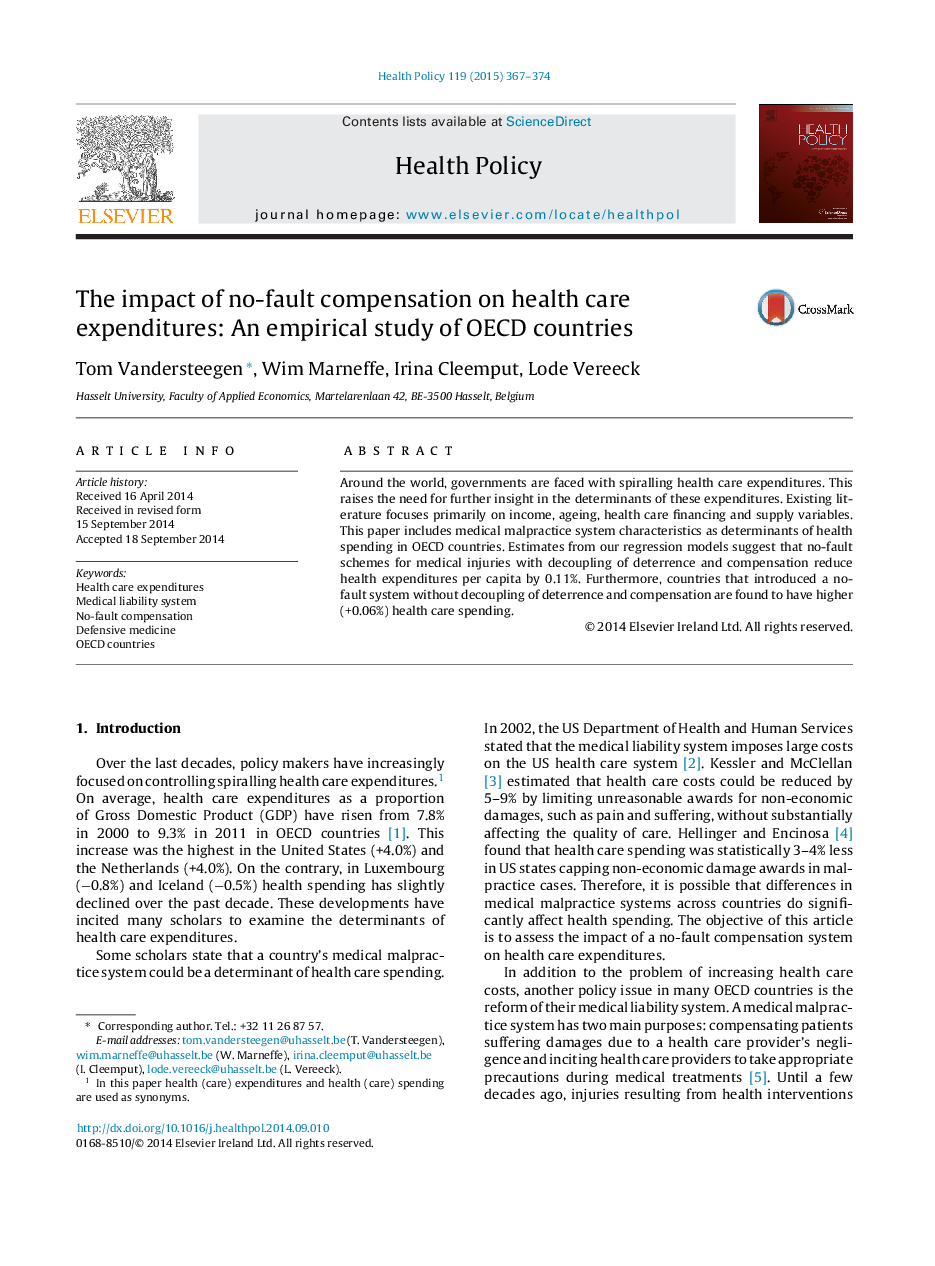| کد مقاله | کد نشریه | سال انتشار | مقاله انگلیسی | نسخه تمام متن |
|---|---|---|---|---|
| 6239486 | 1278998 | 2015 | 8 صفحه PDF | دانلود رایگان |

- Health care expenditures in OECD countries are analyzed using regression models.
- A country's medical malpractice system is added as a determinant of health spending.
- No-fault compensation for medical malpractice lowers health care expenditures.
- The decoupling of deterrence and compensation leads to differences in spending.
Around the world, governments are faced with spiralling health care expenditures. This raises the need for further insight in the determinants of these expenditures. Existing literature focuses primarily on income, ageing, health care financing and supply variables. This paper includes medical malpractice system characteristics as determinants of health spending in OECD countries. Estimates from our regression models suggest that no-fault schemes for medical injuries with decoupling of deterrence and compensation reduce health expenditures per capita by 0.11%. Furthermore, countries that introduced a no-fault system without decoupling of deterrence and compensation are found to have higher (+0.06%) health care spending.
Journal: Health Policy - Volume 119, Issue 3, March 2015, Pages 367-374